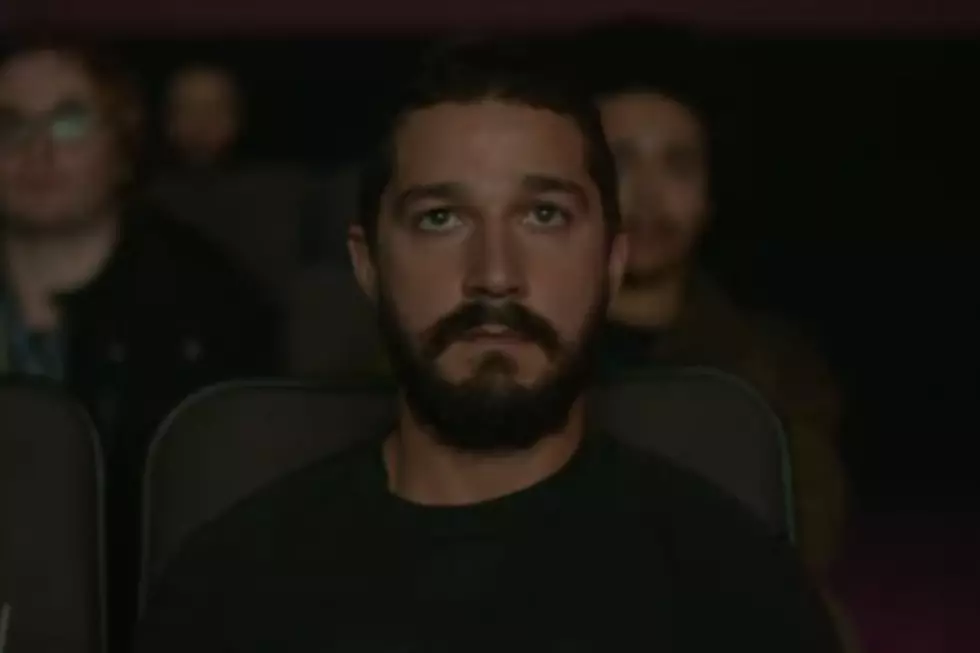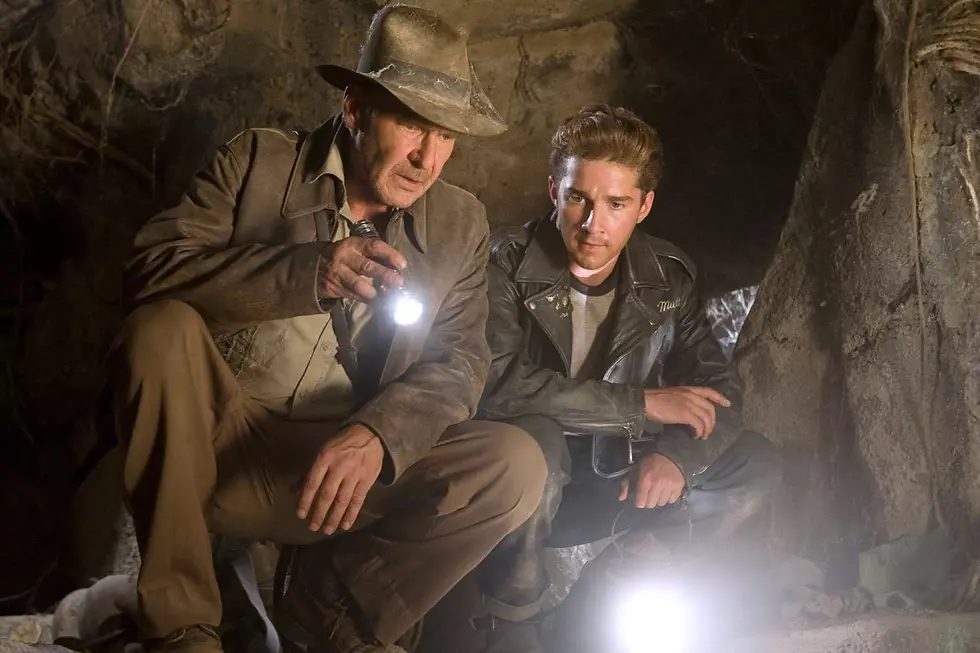![Shia LaBeouf Apologizes for His Plagiarized Short Film [UPDATE]](http://townsquare.media/site/442/files/2013/12/shia-labeouf.jpg?w=980&q=75)
Shia LaBeouf Apologizes for His Plagiarized Short Film [UPDATE]
If there's one thing an artist should never do, it's directly steal from another artist without giving due credit. Apparently, someone forgot to tell Shia LaBeouf, who released a short film he directed online only to find himself being accused of plagiarism. Well, "accused" is the wrong word here, mainly because LeBeouf undoubtedly lifted dialogue and shots from another source, and didn't think that was important to mention in the film's credits.
'HowardCantour.com' seemed awfully insightful and fascinating for a still-fresh director like LaBeouf, but we now know that he lifted material from a Daniel Clowes comic called 'Justin M. Damiano,' which tells the story of a film critic at a junket event with eery accuracy. With every line of dialogue taken straight from the comic and virtually every shot copied like the comic was a storyboard, LeBeouf has been caught red-handed. Why didn't he ask for Clowes' permission? Why didn't someone as well off as him just buy the rights, credit Clowes and make it legal? Who knows. LeBeouf's rambling apology on Twitter Tuesday morning certainly didn't help:
Copying isn't particularly creative work. Being inspired by someone else's idea to produce something new and different IS creative work. In my excitement and naiveté as an amateur filmmaker, I got lost in the creative process and neglected to follow proper accreditation. I'm embarrassed that I failed to credit @danielclowes for his original graphic novella Justin M. Damiano, which served as my inspiration. I was truly moved by his piece of work & I knew that it would make a poignant & relevant short. I apologize to all who assumed I wrote it. I deeply regret the manner in which these events have unfolded and want @danielclowes to know that I have a great respect for his work.
You'd think a guy who has worked in the movie business as long as LeBeouf would know the first thing about copyright laws and ownership and what not. You'd also think his agent and manager would be smart enough to stop him. Then again, you'd also think that he wouldn't stoop so low (as Gawker pointed out) as to plagiarize his apology from Yahoo Answers. Yikes!
UPDATE: LaBeouf has since taken 'HowardCantour.com' offline, but it doesn't look like that will be enough. According to Clowes' longtime editor Eric Reynolds in an e-mail to Buzzfeed, the artist is pursuing his legal options:
His apology is a non-apology, absolving himself of the fact that he actively misled, at best, and lied, at worst, about the genesis of the film. No one ‘assumes’ authorship for no reason. He implied authorship in the film credits itself, and has gone even further in interviews. He clearly doesn’t get it, and that’s disturbing. I’m not sure if it’s more disturbing that he plagiarized, or that he could rationalize it enough to think it was OK and that he might actually get away with it. Fame clearly breeds a false sense of security.
In addition, Clowes said:
The first I ever heard of the film was this morning when someone sent me a link. I’ve never spoken to or met Mr. LaBeouf. I’ve never even seen one of his films that I can recall — and I was shocked, to say the least, when I saw that he took the script and even many of the visuals from a very personal story I did six or seven years ago and passed it off as his own work. I actually can’t imagine what was going through his mind.
More From ScreenCrush









